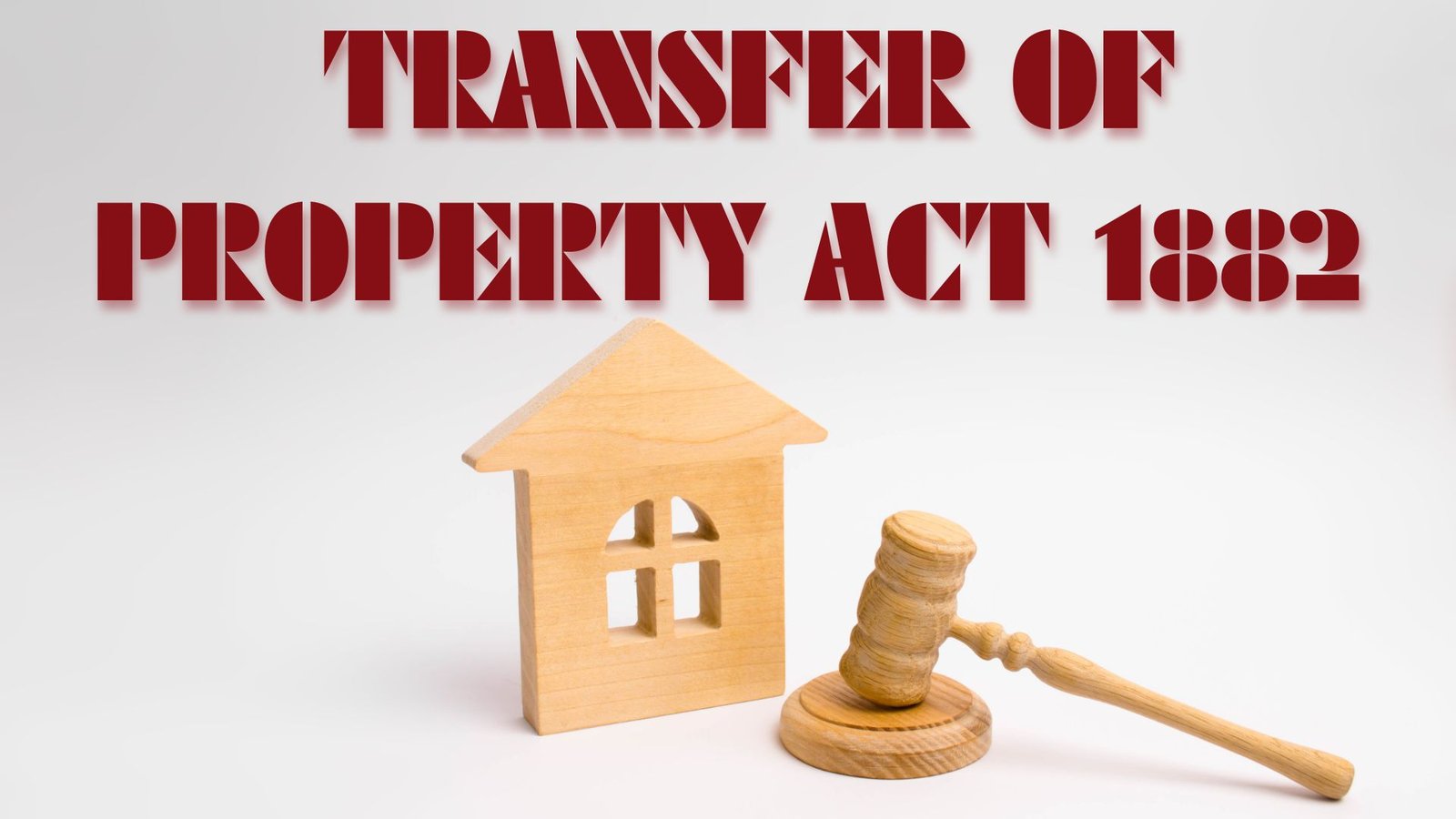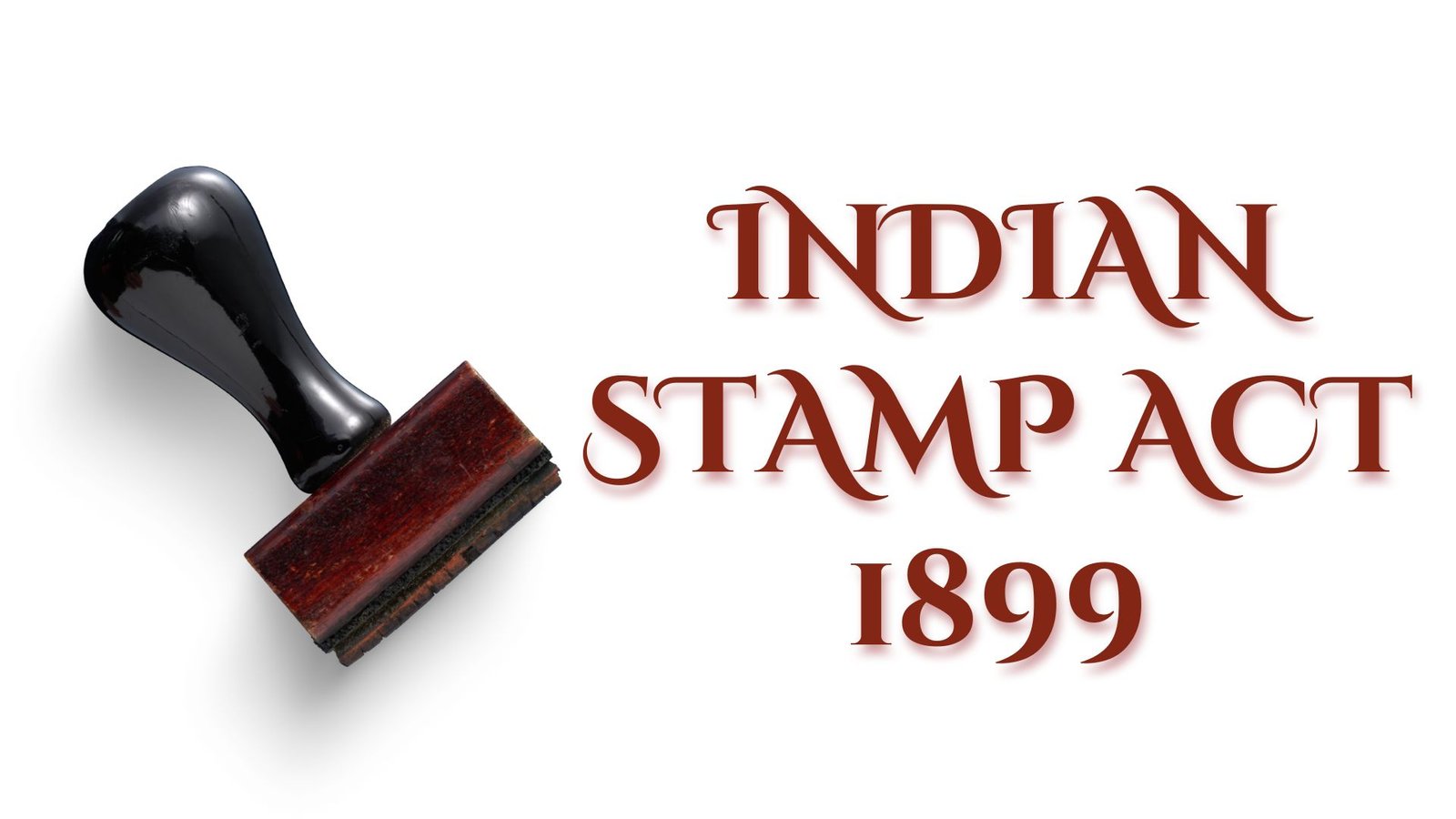On this page you will read detailed information about Transfer of Property Act 1882.
When considering financing options for real estate, you must understand the various mortgage types codified under India’s Transfer of Property Act of 1882. As an informed property owner or potential investor, having knowledge of these laws allows you to make the most advantageous financing decisions on your assets. The Act delineates six formal mortgage structures – simple, mortgage by conditional sale, usufructuary mortgage, English mortgage, mortgage by deposit of title deeds, and anomalous mortgage. Each carries distinct provisions around rights, interest, redemption, and foreclosure. Before entering into any mortgage contract on property located in India, you would be prudent to educate yourself on these mortgage forms outlined in the century-old Transfer of Property Act.
Introduction to Transfer of Property Act (ToPA)
The Transfer of Property Act, 1882 (ToPA) lays down the general principles relating to the transfer of property in India. ToPA aims to amend and define certain aspects of the common law relating to the transfer of property by act of parties. It consolidates the rules of law relating to the transfer of property by act of parties in India.
What does ToPA cover?
ToPA deals with the various methods of transfer of property between living persons, such as sale, mortgage, lease, exchange and gift. It provides the rights and liabilities of the transferor and transferee, the rights and liabilities of the lessor and lessee, and mortgagor and mortgagee. It also deals with the rights and liabilities of the donor, donee, exchanger and exchangee. In other words, ToPA aims to consolidate the law relating to transfer of property between persons during their lifetime.
Essential requirements for transfer of property
For the transfer of any property under ToPA, certain essential requirements must be fulfilled such as the transferor should have the capacity to transfer, the transferor should have a title to the property being transferred, the object of the transfer should be valid, the transfer should be made by a registered instrument in case of immovable property, and delivery of possession should be made wherever it is necessary. If any of these requirements are not fulfilled, the transfer becomes void.
ToPA applies to transfers by living persons of both movable and immovable properties. However, it does not apply to testamentary succession or transfer of properties by operation of law. The provisions of ToPA are also not applicable to agricultural lands, as they are governed by state laws. ToPA aims to achieve uniformity in law relating to transfer of property in India, however, it permits state governments to make rules to suit local requirements.
In the previous post, we had shared information about Examining the Indian Stamp Act 1899 and Its Role in India’s Legal History, so read that post also.
What Is the Transfer of Property Act 1882 (ToPA)?
The Transfer of Property Act, 1882 (ToPA) is an Indian legislation that codifies the law relating to transfer of property in India. ToPA aims to consolidate the rules regarding transfer of property by act of parties. It defines the various types of mortgages recognized under Indian law.
Simple Mortgage
A simple mortgage is a mortgage where the mortgagor binds the mortgaged property for the payment of the mortgage money on a certain date. The mortgagor is allowed to retain possession of the property. If the mortgagor defaults, the mortgagee can file a suit for sale of the mortgaged property. A simple mortgage does not give the mortgagee the right to sell the property without the intervention of the court.
Mortgage by Conditional Sale
In a mortgage by conditional sale, the mortgagor ostensibly sells the mortgaged property to the mortgagee on the condition that it will be re-transferred on payment of the mortgage money. The possession and ownership is transferred to the mortgagee, but the sale is subject to the condition of re-transfer. If the mortgagor defaults, the mortgagee becomes the absolute owner and the mortgagor loses all rights in the property.
Usufructuary Mortgage
In a usufructuary mortgage, the mortgagor delivers possession of the mortgaged property to the mortgagee. The mortgagee is allowed to retain possession and take the rents and profits accruing from the property. The mortgagee is liable to account for the rents and profits and appropriate them towards interest and principal. The mortgagor can reclaim the property on payment of the mortgage money. If the mortgagor defaults, the mortgagee can foreclose the mortgage and sell the property to recover the dues.
ToPA aims to bring clarity regarding different kinds of mortgages and the rights and obligations of the mortgagor and mortgagee. It lays down procedures for redemption, foreclosure and sale of mortgaged properties. The provisions of ToPA apply to agricultural and non-agricultural properties alike.
Simple Mortgage Under the Transfer of Property Act
A simple mortgage is the most common type of mortgage under the Transfer of Property Act, 1882. In a simple mortgage, the mortgagor binds the mortgaged property for the repayment of the mortgage money. The mortgagee has the right to recover satisfaction of the mortgage-money out of the proceeds of the sale of the mortgaged property, in case of default.
Essentials of A Simple Mortgage
For a simple mortgage, the following essentials must be fulfilled:
- The mortgagor must be the owner of the mortgaged property. He should have absolute title over the property.
- The mortgaged property must be immoveable property. Simple mortgage cannot be created on moveable property.
- The mortgaged property must be properly described in the mortgage deed. Any ambiguity regarding the identity of the property will make the mortgage invalid.
- The mortgage deed must specify the amount of loan, rate of interest and the terms of repayment.
Rights of Mortgagee
The mortgagee has the following rights under a simple mortgage:
- Right of Foreclosure: The mortgagee can get the mortgaged property sold through court, in case the mortgagor fails to repay the mortgage money. The proceeds of the sale will be utilized to recover the mortgage dues.
- Right of Sale: The mortgagee can sell the mortgaged property directly to recover his dues, if the mortgage deed contains a power of sale clause.
- Right to Sue: The mortgagee can file a mortgage suit against the mortgagor to recover the mortgage money. Decree of the court will direct the sale of the mortgaged property.
- Right of Redemption: Once the mortgagor repays the entire mortgage money, the mortgagee will re-convey the mortgaged property to the mortgagor. This is known as the right of redemption of the mortgagor.
In conclusion, a simple mortgage creates an interest in the mortgaged property in favor of the mortgagee. The mortgagee can recover his dues by exercising his rights over the mortgaged property in case of default in repayment by the mortgagor. At the same time, the mortgagor can reclaim his property by paying off the entire mortgage money.
Mortgage by Conditional Sale Under the Transfer of Property Act
Definition
A mortgage by conditional sale refers to a mortgage where the mortgagor transfers ownership of the mortgaged property to the mortgagee on the condition that the ownership would be re-transferred to the mortgagor on repayment of the mortgage money. The transaction is essentially a sale with a condition of re-purchase. The mortgagee becomes the owner of the property until the mortgage amount is repaid.
Rights of the Mortgagee
The mortgagee, as the owner of the property, has the right to take possession and enjoy the rents and profits accruing from the property. The mortgagee can transfer the ownership or lease the property to a third party. However, the rights of the mortgagee are subject to the right of the mortgagor to get the property re-transferred on payment of the mortgage amount.
Redemption
The mortgagor has the right to get the property re-transferred by paying the mortgage amount to the mortgagee, which is known as the ‘right of redemption’. The mortgagor can exercise the right of redemption even after the property has been transferred to a third party by the mortgagee. The third party purchaser steps into the shoes of the mortgagee, and the mortgagor can get the property re-transferred by paying the mortgage amount to such third party.
Foreclosure
If the mortgagor fails to exercise the right of redemption within the prescribed period, the mortgagee (or the third party purchaser) can foreclose the right of redemption and become the absolute owner of the property. The procedure for foreclosure has been laid down under the Transfer of Property Act. On completion of the foreclosure procedure, the mortgagor loses all rights in the mortgaged property.
In conclusion, under a mortgage by conditional sale, the ownership of the property is transferred to the mortgagee to secure the repayment of the mortgage amount. The mortgagor retains the right of redemption to get the property re-transferred. Failure to exercise the right of redemption within the prescribed period can lead to foreclosure, resulting in the loss of rights of the mortgagor in the mortgaged property.
Usufructuary Mortgage Under the Transfer of Property Act
Under the Transfer of Property Act, 1882, a usufructuary mortgage is a type of mortgage where the mortgagor transfers the right to retain possession and receive profits from the mortgaged property to the mortgagee. The mortgagee is entitled to retain possession of the mortgaged property and appropriate its rents and profits towards the payment of interest on the mortgage money and in liquidation of the principal.
Creation of Usufructuary Mortgage
To create a usufructuary mortgage, the mortgagor transfers possession of the property to the mortgagee. The mortgage deed contains a clause granting the mortgagee the right to retain possession and receive rents and profits of the property. The mortgagee gets the right to possession and enjoyment of the property until the mortgage is redeemed.
Rights of the Mortgagee
The mortgagee has the right to remain in possession of the property and collect its rents and profits. The rents and profits are first used to pay interest on the mortgage money and the balance amount is used to repay the principal amount of the mortgage. The mortgagee is liable to pay taxes and rent in respect of the property. The mortgagee can sue the tenants of the property for rent in default.
Rights of the Mortgagor
The mortgagor has the right to redeem the mortgage on payment of the mortgage money even before the expiry of the period fixed for redemption. The mortgagor is entitled to require the mortgagee to furnish accounts of the rents and profits received and the amounts spent by him. The mortgagor can sue for redemption or for possession of the property if the mortgagee fails to take proper care of the property or commits acts permanently injurious to the property.
Termination of Usufructuary Mortgage
A usufructuary mortgage terminates by redemption, foreclosure or sale of the property. On redemption, the mortgagee restores possession of the property to the mortgagor. On foreclosure, the mortgagee acquires absolute ownership of the property. The mortgaged property can also be sold with the consent of both parties and the sale proceeds are used to redeem the mortgage.
English Mortgage Under the Transfer of Property Act
Under the Transfer of Property Act, 1882, an English mortgage is one where the mortgagor binds himself personally to repay the mortgage money. It is essentially an equitable mortgage created by deposit of title deeds. The mortgagor covenants to pay the principal amount with interest and in default of payment, the mortgagee will have the power to sell the mortgaged property.
In an English mortgage, the legal ownership of the mortgaged property remains with the mortgagor. However, the mortgagee steps into the shoes of the mortgagor and acquires all the rights that the mortgagor had over the property before the mortgage was created. The mortgagee can exercise the rights and powers of the mortgagor in order to protect his interests.
The mortgagee has the right to recover the mortgage money from the mortgagor. The mortgagor is personally liable to pay the debt. The mortgagee can sue the mortgagor for recovery of the mortgage money. In case the mortgagor fails to pay, the mortgagee can bring the mortgaged property to sale after giving reasonable notice to the mortgagor. The sale proceeds are first used to pay off the mortgage money. The surplus amount, if any, goes to the mortgagor.
An English mortgage requires registration under the Transfer of Property Act to make it operative against third parties. Non-registration does not invalidate the mortgage but affects its priority. The mortgagee gets a right to sue for sale of the property. However, his right is subject to the rights of subsequent mortgagees and transferees who have registered their documents.
In conclusion, an English mortgage creates a personal obligation on the mortgagor to repay the debt and gives the mortgagee the right to sell the property as well as sue the mortgagor in case of default. Proper registration of the mortgage deed is necessary to secure the interests of the mortgagee against the whole world.
Mortgage by Deposit of Title Deeds Under the Transfer of Property Act
Mortgage by deposit of title deeds is one of the most common types of mortgage under the Transfer of Property Act, 1882. Under this type of mortgage, the mortgagor deposits the title deeds of his immovable property with the mortgagee as security for the loan, without executing any written mortgage deed. The mortgagor continues to remain in possession of the property. This type of mortgage is also known as equitable mortgage.
To create a mortgage by deposit of title deeds, the mortgagor and mortgagee enter into an oral agreement and the mortgagor deposits the title deeds of the mortgaged property with the mortgagee. The mortgagee holds these title deeds until the repayment of the loan amount with interest by the mortgagor. The mortgagor can continue using the property and retain possession of it. However, the mortgagee acquires an equitable interest in the property which can be enforced against the mortgagor as well as third parties.
The main advantage of this type of mortgage is that it can be created quickly without any written document. However, there are certain disadvantages as well. There may be issues in establishing the exact terms and conditions of the mortgage in the absence of any written agreement. There is also a possibility of disputes arising regarding the factum of deposit of title deeds. To avoid such issues, it is advisable to execute a memorandum of deposit of title deeds, setting out the detailed terms and conditions of the mortgage.
A mortgage by deposit of title deeds is a secure method of creating a mortgage over immovable property. However, due care must be taken to draft a comprehensive memorandum of deposit of title deeds to safeguard the interests of both the mortgagor and mortgagee. Proper precautions should also be taken for the safe custody of the title deeds deposited with the mortgagee.
Conclusion
Having reviewed the key mortgage types under the Transfer of Property Act, 1882, you now have a solid understanding of simple mortgage, mortgage by conditional sale, usufructuary mortgage, English mortgage, and anomalous mortgage. Each type serves a distinct purpose and has unique characteristics regarding rights and obligations for the mortgagor and mortgagee. As you evaluate mortgage options for property transfers, carefully consider the legal specifications, procedures, and implications to determine the most fitting arrangement. Consult a knowledgeable real estate attorney when drafting mortgage agreements to ensure full compliance and protection under the law for all parties involved. Applying this knowledge, you can make informed decisions when leveraging property as collateral while upholding legal standards that support ethical business practices.
Disclaimer
The information and services on this website are not intended to and shall not be used as legal advice. You should consult a Legal Professional for any legal or solicited advice. While we have good faith and our own independent research to every information listed on the website and do our best to ensure that the data provided is accurate. However, we do not guarantee the information provided is accurate and make no representation or warranty of any kind, express or implied, regarding the accuracy, adequacy, validity, reliability, availability, or completeness of any information on the Site. UNDER NO CIRCUMSTANCES SHALL WE HAVE ANY LIABILITY TO YOU FOR ANY LOSS OR DAMAGE OF ANY KIND INCURRED AS A RESULT OR RELIANCE ON ANY INFORMATION PROVIDED ON THE SITE. YOUR USE OF THE SITE AND YOUR RELIANCE ON ANY INFORMATION ON THE SITE IS SOLELY AT YOUR OWN RISK. Comments on this website are the sole responsibility of their writers so the accuracy, completeness, veracity, honesty, factuality and politeness of comments are not guaranteed.
So friends, today we talked about Transfer of Property Act 1882, hope you liked our post.
If you liked the information about Transfer of Property Act 1882, then definitely share this article with your friends.
Knowing about laws can make you feel super smart ! If you find value in the content you may consider joining our not for profit Legal Community ! You can ask unlimited questions on WhatsApp and get answers. You can DM or send your name & number to 8208309918 on WhatsApp









